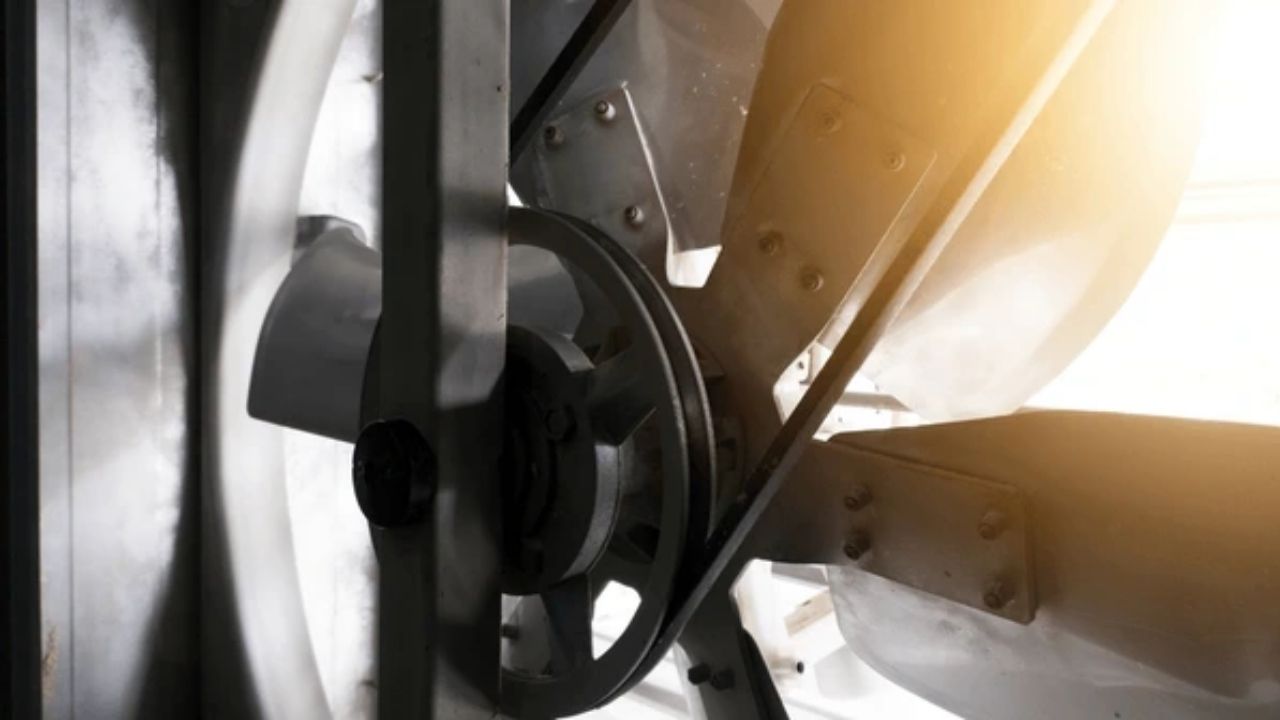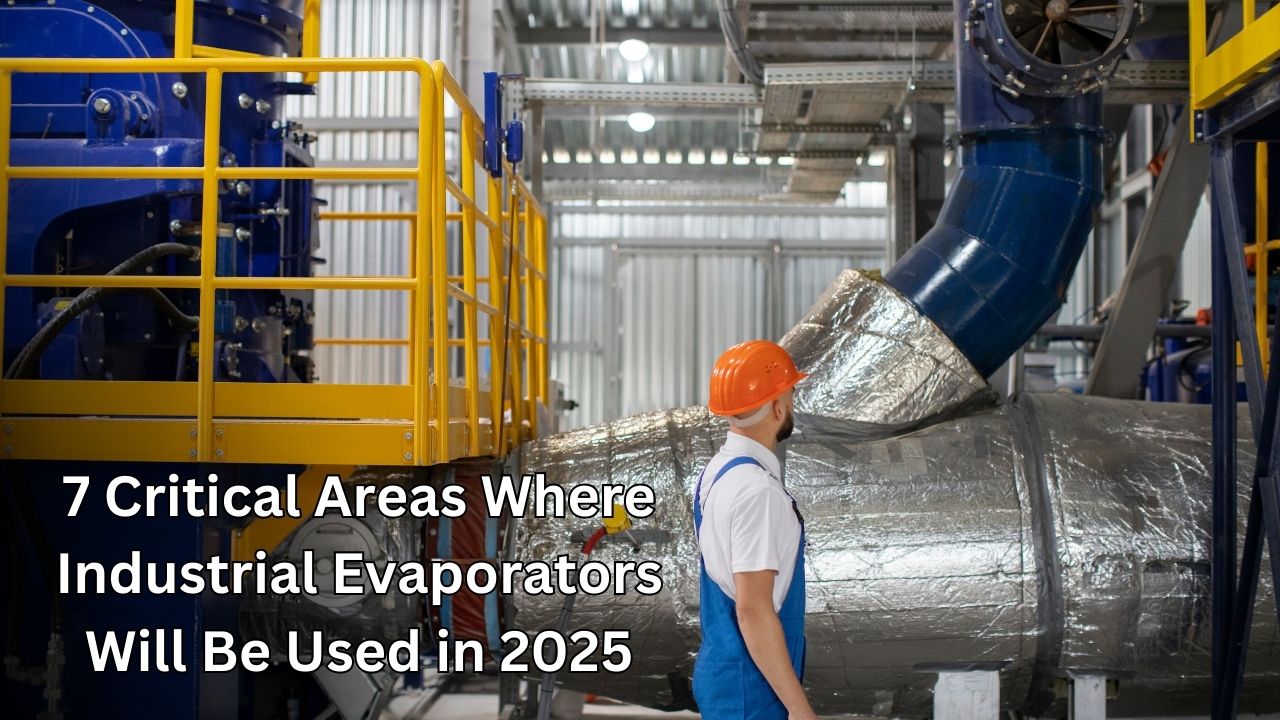
Axial Fan Types Performance and Application Areas


In 2025, industrial evaporators continue to play a vital role in numerous sectors of modern industry. These devices facilitate processes such as liquid evaporation, concentration, and cooling, delivering energy efficiency and process optimization. Advanced technologies and eco-friendly designs are further expanding the use of evaporators. Below, we explore in detail the seven critical fields where these devices are most intensively utilized.
The food and beverage industry is one of the primary fields where industrial evaporators are widely employed. In 2025, evaporators are indispensable in processes such as the concentration of dairy products, fruit juice production, sugar syrup preparation, and the distillation of alcoholic beverages. For instance, in milk powder production, evaporators remove a significant portion of water from liquid milk, reducing its volume and extending shelf life. This process is made more efficient with energy-saving multi-stage evaporator systems.
Next-generation evaporators, designed to meet food safety standards, incorporate energy-efficient features. Stainless steel surfaces, automated cleaning systems, and precise control mechanisms ensure hygienic production processes. Additionally, these systems minimize waste, promoting an environmentally friendly approach. In the food industry, the use of evaporators reduces costs while enabling the production of high-quality products. Particularly in organic food production, these devices help preserve natural ingredients.

The chemical and petrochemical industry is a demanding field where evaporators operate under high temperatures and pressures. In 2025, evaporators are extensively used in processes such as chemical separation, solvent recovery, and wastewater treatment. For example, highly efficient evaporator systems (MVR - Mechanical Vapor Recompression) recompress steam to significantly reduce energy consumption, supporting sustainability goals.
In this sector, the material quality and durability of evaporators are of paramount importance. Corrosion-resistant alloys provide long-lasting performance against acidic and aggressive chemicals. Advanced automation systems enable precise control of processes, enhancing reliability. In petrochemical plants, evaporators facilitate efficient raw material processing while ensuring compliance with environmental regulations.
The pharmaceutical industry requires precise and high-standard production processes. Industrial evaporators are used for the concentration, purification, and crystallization of active pharmaceutical ingredients (APIs). In 2025, these devices stand out with hygienic designs compliant with GMP (Good Manufacturing Practices) standards in sterile production environments. Evaporator surfaces are equipped with special coatings to minimize contamination risks.
Innovative evaporator technologies save energy and reduce waste in pharmaceutical production. Precise temperature and pressure control ensures the chemical integrity of active ingredients. Additionally, these systems offer flexibility for small-batch production of high-value drugs. The use of evaporators in the pharmaceutical industry accelerates production processes and enhances cost-effectiveness.
Energy and waste management is a field where evaporators make a significant impact on environmental sustainability. In 2025, evaporators are widely used in wastewater treatment plants for evaporating contaminated water and recovering valuable materials. For instance, in mining wastewater, evaporators play a critical role in separating valuable minerals like lithium, reducing environmental pollution while generating economic benefits.
Evaporator systems integrated with renewable energy sources optimize energy consumption and reduce carbon footprints. Solar-powered evaporators, in particular, are preferred for wastewater treatment projects in remote areas. These systems provide a valuable solution for facilities aiming to align with global climate goals, such as the Paris Agreement.
Industrial evaporators are essential components of cooling systems. In 2025, these devices are used across a wide range of applications, from large-scale cold storage facilities to logistics centers and food processing plants. In food logistics, evaporators ensure precise temperature control to keep products fresh, which is particularly crucial in global supply chains for perishable goods.
Energy efficiency is a top priority in cooling systems. Smart control systems, low-energy fans, and optimized heat exchangers enhance evaporator performance. Environmentally friendly refrigerants are replacing those harmful to the ozone layer. These innovations lower operating costs while minimizing environmental impact.
Agriculture and greenhouse systems represent an innovative field where evaporators are used for climate control and humidity management. In 2025, evaporators in modern greenhouses maintain optimal temperature and humidity levels to enhance plant growth. In water-stressed regions, evaporative cooling systems boost agricultural productivity by creating a cool environment through water evaporation, reducing plants’ water requirements.
Evaporators support organic farming and sustainable production models by minimizing chemical use. Energy-efficient designs provide cost-effective solutions, particularly for small-scale farms. Additionally, IoT-integrated evaporators enable remote monitoring and management, streamlining agricultural processes.
Data centers and electronics manufacturing facilities are another critical field where industrial evaporators are heavily utilized in 2025. High-performance servers, artificial intelligence systems, and IoT devices require continuous cooling. Evaporators provide precise temperature control, ensuring the reliability and longevity of equipment.
Energy consumption is a significant cost factor in data centers. Evaporators offer energy-efficient cooling solutions to alleviate this burden. Systems integrated with free cooling technologies leverage ambient temperatures to save energy. Moreover, the compact designs of evaporators optimize space utilization in data centers.

Fill out the form to discover the most suitable high-end products for your projects. Contact Us Now.